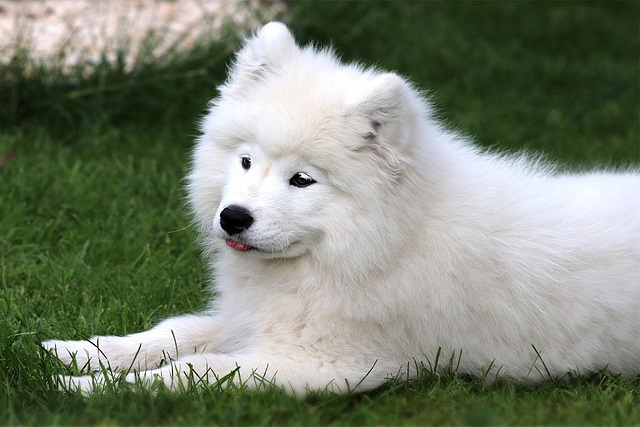
How can I tell if my dog's heatstroke is serious
Let’s be real: It’s a sticky August morning in Los Angeles, and you took your 2-year-old Golden Retriever, Max, for a walk a little later than usual
When we joyfully watch our dogs jumping around at home and enjoy the warm companionship they bring, we sometimes notice brown discharge around their eyes, which not only affects their appearance but also worries about their health. The brown discharge around a dog's eyes may be caused by various factors, and finding appropriate methods to remove these secretions is crucial for the dog's eye health.
Diet is one of the common causes of brown discharge in dogs' eyes. If dogs consume high oil and high salt foods for a long time, or if certain nutrients are lacking in the food, it may lead to endocrine disorders and increase eye secretions. For example, some owners like to feed their dogs human meals, which often contain a lot of salt and oil. The dog's body cannot metabolize them well, which is easily reflected in the eyes. Also, the poor quality and unbalanced nutrition of some dog food may also cause similar problems.
Eye diseases are also factors that cannot be ignored. Conjunctivitis is a common eye disease in dogs, which can be caused by bacterial, viral infections, or external stimuli. Dogs with conjunctivitis may experience redness, swelling, itching, increased secretion, and often appear brown or yellow in color. Keratitis can also cause abnormal eye secretions in dogs, which may be caused by infection and inflammation after corneal injury. In addition, lacrimal gland inflammation can also cause excessive secretion of tears in dogs, which cannot be discharged normally, resulting in the formation of brown discharge around the eyes.
Improper daily cleaning can also exacerbate the brown discharge around a dog's eyes. Dogs have long hair around their eyes, and if not cleaned in time, secretions can easily adhere to the hair, forming brown scabs after drying. Moreover, prolonged lack of eye hygiene can lead to bacterial growth, further stimulating the eyes and increasing secretion.
When brown discharge is found around a dog's eyes, we need to use scientific methods to remove it. Firstly, it is necessary to adjust the dog's diet. Choose high-quality dog food that is nutritionally balanced, low in salt and oil, and avoid feeding human food to dogs. Dogs can be supplemented with foods rich in vitamins A, C, and E, such as carrots, blueberries, etc. These vitamins are very helpful for their eye health. Vitamin A can maintain the normal function of the retina, while vitamins C and E have antioxidant effects and can alleviate eye inflammation.

For brown discharge caused by eye diseases, it is important to take your dog to a veterinarian in a timely manner. Veterinarians will provide appropriate treatment based on the specific condition. If it is conjunctivitis, antibiotic eye drops or ointments may be used for treatment; Keratitis requires more specialized treatment, which may include the use of drugs that promote corneal repair or prevent infection. During the treatment process, strictly follow the veterinarian's instructions to administer medication to the dog, and do not increase or decrease the dosage or stop the medication on your own.
Daily cleaning work is also very important. Gently wipe the secretions around the dog's eyes with a clean damp towel or cotton ball every day. When wiping, gently wipe from the corner of the eye towards the end of the eye, using gentle movements to avoid damaging the dog's eyes. If the secretion has dried and scabbed, it can be moistened with warm water first, and then gently wiped after the scabbed softens. For dogs with long hair, it is necessary to regularly trim the hair around the eyes to avoid irritation and facilitate cleaning.
In addition to cleaning and treatment, it is also important to pay attention to the dog's living environment. Keep the environment clean and hygienic, regularly clean the room, and reduce the growth of dust and bacteria. Avoid exposing dogs to irritating substances such as smoke, chemical cleaners, etc., as these substances may irritate the dog's eyes and lead to increased secretions.
Dogs are our most loyal companions, they cannot speak and can only convey their discomfort through some physical expressions. When we notice brown discharge around a dog's eyes, we should not ignore it. We should take care of it with our hearts, identify the root cause of the problem, and use scientific methods to help it solve it. Let's work together for the eye health of dogs, so that they can always use bright eyes to curiously look at the world and accompany us through more wonderful times.

Let’s be real: It’s a sticky August morning in Los Angeles, and you took your 2-year-old Golden Retriever, Max, for a walk a little later than usual

You're enjoying a summer afternoon at the park when you notice your dog has stopped panting and appears disoriented - their gums are bright red

Let’s paint the picture: You’re in your Denver apartment, watching your 4-year-old Boston Terrier, Ruby, plop down mid-play session with her favorite toy

Many dog owners notice their pets nails seem shorter after regular walks,but how much does this daily activity actually help?The answer depends on where you walk—concrete sidewalks or asphalt streets gently file nails as a dog's paws hit the ground

Most dog owners notice their pup scooting across the carpet at some point, but few connect it to impacted anal glands. These small sacs near a dog’s rectum secrete a scent for marking territory

Most vets agree that regular dog teeth cleaning is key to avoiding painful dental issues later. For healthy adult dogs, a professional cleaning at the vet’s office every 12 to 18 months usually works well.